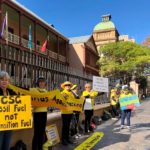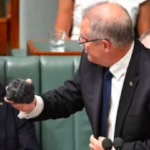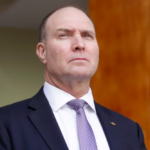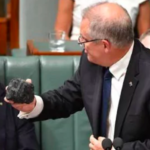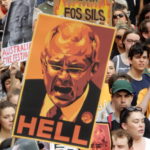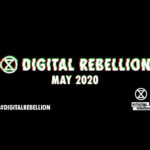Silenced During the Narrabri Gas Project Hearings: An Interview With NSW Gas Ban’s Jo Evans
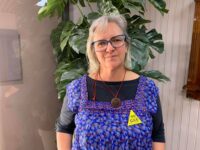
Last Friday, Facebook notified the admin of the NSW Gas Ban page that it would be censoring its content for the period of a week ending on 24 July. This means that any posts made by the page this week won’t be sent out over the newsfeeds of its 6,000 followers.
The social media giant indicated that the page has effectively been shut down for a week, as it hadn’t been complying with its policies. However, it’s failed to explain just what sort of breaches have been made, while, due to COVID, the company’s usual review process isn’t available.
And then there’s the glaring coincidence here.
This week the NSW Independent Planning Commission (IPC) is holding its week-long public hearing into the Santos Narrabri Gas Project. And this controversial proposal is specifically what NSW Gas Ban has been campaigning against.
“This reeks of interference by the pro-gas lobby to stop us reaching you in the upcoming week,” NSW Gas Ban posted on Saturday. This is “the crucial week of the IPC hearing, which is the pinnacle of a 10 year-long campaign against Santos in Narrabri”.
A step closer
As last summer’s bushfire crisis was still underway, prime minister Scott Morrison cut a gas expansion deal with NSW premier Gladys Berejiklian, which, again coincidentally, involves an amount of gas that’s about the same as that promised by Santos in its Narrabri proposal.
NSW Gas Ban warns that not only will the Narrabri Gas Project have a devastating effect on the Pilliga State Forest, but it will also allow for further northwest region coal seam gas exploration licences to come into play.
The NSW Department of Planning, Industry and Environment tabled its Narrabri Gas Project report in June. And based on its assessment, the department “considers the project is in the public interest and is approvable subject to strict conditions”.
And following from that, the week-long IPC public hearing is the last step in the process prior to making a final decision.
Established in March 2018, the IPC is an independent body charged with making determinations in line with the Environment Planning and Assessment Act 1979 (NSW).
Far from over
NSW Gas Ban has this week been on site in Narrabri. The group was formed back in 2013 in order to combat the gas invasion in the country’s eastern states.
Coal seam gas mining involves the release of methane into the atmosphere, which is 80 times more potent than carbon emissions in terms of global heating.
However, with a report from the National COVID-19 Coordination Commission being leaked in May, it looks like the Morrison government is championing gas expansion as a way out of a post-pandemic economic recession.
So, it seems the battle against the highly destructive practice of coal seam gas mining has only just begun.
Sydney Criminal Lawyers spoke to NSW Gas Ban spokesperson Jo Evans about what she thinks is behind Facebook censoring the group’s page, the impact the Narrabri project would have in the local region, and how project approval is no guarantee the proposal will ever see light of day.
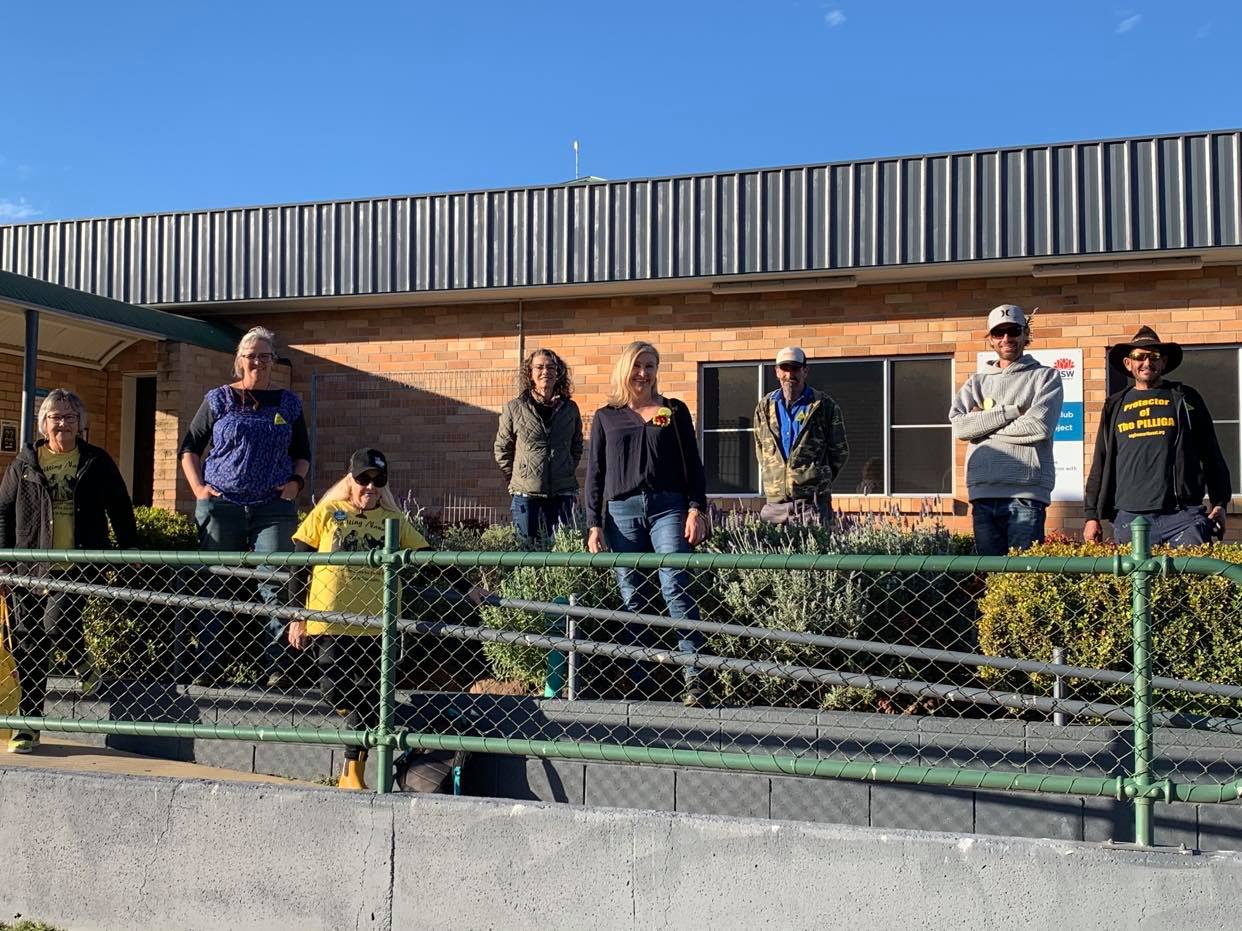
Firstly, Facebook informed you last Friday that it’s censoring the NSW Gas Ban page for an entire week ending on 24 July.
The social media giant hasn’t told you why it’s done this. But, strangely enough, it coincides with a week-long Independent Planning Commission public hearing on the proposed Santos Narrabri Gas Project.
How significant would you say this censoring of the campaign page is during the week of the IPC hearing?
It’s incredibly significant. The page has been a long-standing conduit of information surrounding the gas debate in NSW.
It has had various incarnations, Stop CSG Tara, Pilliga Push and now NSW Gas Ban.
We’ve never before been placed in the Facebook sinbin and can see no reason for Facebook to take this action.
The action taken by Facebook has reaffirmed to us how effective the page has been in the past in providing information to the gasfield free movement.
So, given the fact that the social media page has been set up to campaign against the project that’s being discussed at the IPC this week, how do you explain Facebook having shut it down at present?
Facebook has only indicated that the restriction “could be due to activities from your page that don’t comply with Facebook policies”.
The page has received no indication of what the offending post could be under any known Facebook policies.
We know that hostile agents can game the Facebook algorithm to undermine opposing messaging.
We don’t have the evidence to say one way or another, but the circumstantial nature of the Facebook restriction and the timing are coincidental and that’s a gross understatement.
We understand that this censoring is also occurring to other groups and individuals.
The IPC hearing is underway. How has it been going? And what do you expect to come out of it?
One of the real surprises of the IPC hearing so far, is the way that the state’s top mining approvals bureaucrat David Kitto stumbled through the questioning by IPC commissioners and the counsel assisting, Richard Beasley SC.
I expect the truth will be revealed over the coming days of this extended public hearing – that the Narrabri Gas Project is unapprovable.
If the Narrabri Gas Project does go ahead, what sort of an impact is it likely to have?
If the project goes ahead it will have catastrophic impacts on the groundwater – this is the primary impact.
We believe the Narrabri Gas Project approval is purely a turnkey political approval that will open the door to spreading gasfields across the northwest.
The Narrabri Gas Project is located within the region covered by Petroleum Exploration Licence 238 (PEL238), which may not be the optimum target. You could liken any approval to a Trojan horse.
It was the NSW Department of Planning, Industry and Environment that undertook the assessment of the Narrabri Gas Project.
Following its March 2019 election win, the Berejiklian government incorporated the Office of the Environment into the Planning Department.
Has incorporating environmental protection into planning had an impact in terms of approvals?
The NSW Independent Planning Commission came under strong attacks from the mining industry after it declined some mine approvals.
This led to a hasty Productivity Commission report, which recommended a suite of changes to the IPC, attempting to diminish its independence.
It is still regarded as independent, but its ability to obtain its own independent expertise is now at the mercy of the Planning Assessments branch who decide whether their own assessment is adequate.
And lastly, the IPC public hearing is about to come to an end, the government’s project assessment is in. What happens if the IPC approves the project?
If the project is approved by the IPC, Santos can expect to see a sustained period of direct action opposing any forest operations that further their gasfield ambitions.


